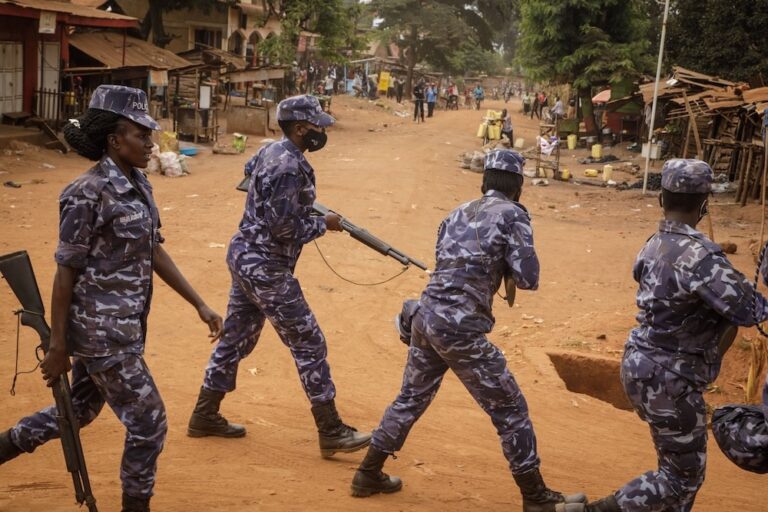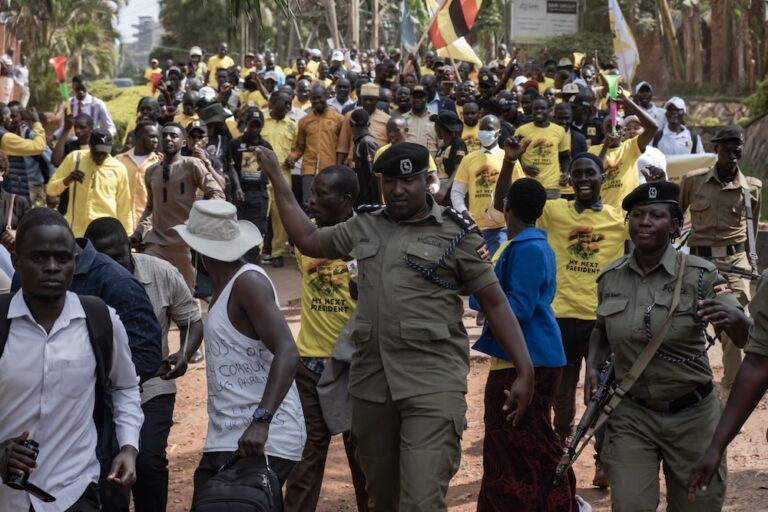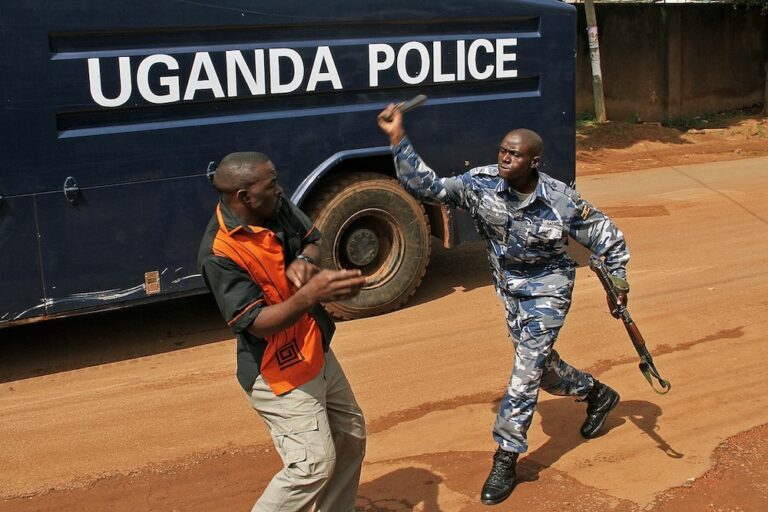Ugandan journalists from a diverse array of associations persisted in their mission to deliver a petition protesting police brutality despite the heavy handed tactics to prevent them from doing so.
This statement was originally published on hrnjuganda.org on 4 November 2019.
Police in Kampala arrested a number of journalists who were delivering a petition to the Inspector General of Police on 4 November 2019. The journalists were protesting the continued violation of their rights by the Uganda Police Force.
Some of the journalists arrested include among others, Moses Mulondo, the leader of the Uganda Parliamentary Press Association, Hajji Kazibwe Bashir Mbaziira, the President of the Uganda Journalists Association, Abubaker Lubowa, Moses Bayola, Ssendegeya Mohamad, Kiberu Siraje, Alex Esagala both of the Daily Monitor, and Isaac Ssemakadde, one of the journalists’ lawyers. Over twenty journalists were arrested when police fired teargas, assaulted people and tore clothes in a scuffle that lasted for hours in the city center.
Human Rights Network for Journalists-Uganda, the Uganda Journalists Association, and the Uganda Parliamentary Association had earlier made an appointment with the police chief, Ochora, who assigned the Police’s Political Commissar, AIGP Asan Kasingye to receive the petition on his behalf at the police headquarters at Naguru in Kampala. The journalists assembled at the Uganda Railways ground and UMA at Lugogo to start off their procession to Naguru, but were intercepted and brutally teargassed and arrested by police.
The journalists insisted on petitioning the police despite the incursion on them along the way. After several efforts to block and foil the procession, the police released the arrested journalists and let in a few of them who delivered the petition to Asan Kasingye the National Political Commissar, AIGP Abass Byakagaba and AIGP Asuman Mugenyi who represented the IGP.
In their petition, the journalists request that the police prosecutes the officers implicated in the attack on journalists, sets up a technical committee to come up with an action plan to harmonise the relations between the two, compensate those who have been assaulted and lost their gadgets or sustained injuries, desists from making hate statements against the media, and sensitises regularly the police on human rights and the media, among others. The journalists want the top leadership of the police to resign their positions in case of failure to arrest this situation in a timely manner.
The petition came as a result of the impasse at Makerere University where a number of journalists were assaulted while covering university students who were protesting a 15% increment on their tuition. Some journalists lost their gadgets in the process while others sustained injuries, and others were denied access to the news scene. No action had been taken against the errant police officers hence the decision by the journalists’ leaders to petition the police force.
Kasingye assured journalists that the petition will be delivered to the police boss who will consequently meet the petitioners.
On 31 October, the journalists slapped a media black-out on all police activities as a protest to the brutality. Bashir Kazibwe, Ssempala Robert, and Moses Mulondo all said that it’s important to make sure the black-out is maintained until police acts on their demands. They warned that if the police don’t respond in a timely manner, they would mobilise journalists to take other drastic actions over time.
The journalists appealed to their employers to also come out and fight the said brutality before the situation is too late.



